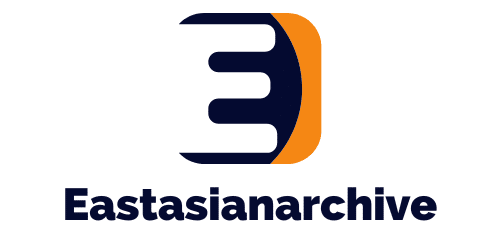How Can AI-Enhanced Learning Analytics Predict Student Success in UK Universities?

The impact of data analytics in education is becoming increasingly prominent. Universities are leveraging technology to track and analyze student data to predict their performance, engagement, and outcomes. Artificial Intelligence (AI) enhanced learning analytics is at the forefront of this exciting revolution. In the context of UK higher education institutions, these analytics are being used to support student success in various ways. But how exactly does it work? How are AI and data analytics influencing learning, teaching, and student support? This article delves into how AI-enhanced learning analytics is shaping student success in UK universities.
Role of AI and Learning Analytics in Student Engagement and Performance
Learning analytics is the process of collecting, analyzing, and interpreting substantial amounts of data that students generate during their learning journey. The rise of online education has given birth to an enormous wealth of data. The application of AI in learning analytics helps to make sense of this data, providing deep insights into student engagement and performance.
Topic to read : Unlock adventure: why mystery box online is a must-try
AI-enhanced learning analytics can monitor a student’s online interaction with course material, peers, and instructors. This data then serves as a basis for analysis. For example, if a student consistently logs into the online learning platform at 1 am, the algorithm might flag this as potential burnout. This early red flag enables educators or support staff to intervene and provide guidance to the student.
Furthermore, learning analytics can track the extent of a scholar’s engagement with online resources. Are students watching the complete video lectures? Are they participating in the online forums? These insights, based on behavioral data, can help universities to improve their course content, teaching methods, and learning environments.
In parallel : The 15 most outstanding commercial ads you need to see
Predictive Analytics in Higher Education
Predictive analytics uses past data to forecast future outcomes. In the context of higher education, it can predict a student’s academic trajectory based on their current performance data. AI enhances this process by learning from the data, recognizing patterns, and making predictions with high accuracy.
For instance, if a student’s data shows consistent low engagement with course materials and lack of participation in online forums, AI predictive analytics might forecast a high risk of the student dropping out. Universities can then take proactive measures to provide extra support and guidance to the student, with the aim of improving their engagement and preventing potential dropouts.
Google and other tech companies offer AI-based tools that universities can use to undertake predictive analytics. These tools can analyze data from student engagement with online learning platforms and use machine learning algorithms to predict their academic outcomes.
Personalized Learning and Feedback Through AI
Personalized learning and feedback are vital components of effective teaching and learning. They help a student understand their strengths, weaknesses, and areas of improvement. AI-enhanced learning analytics can aid this process by providing personalized feedback based on students’ learning data.
For instance, an AI tool can analyze a student’s assignment, compare it with a database of high-quality assignments, and provide feedback on where it falls short. It can also suggest resources that the student can use to improve their work.
Moreover, AI can help create personalized learning paths for students. For example, if a student consistently struggles with a particular topic, AI can suggest additional resources or exercises to help them grasp the concept.
The Ethical Aspect of AI-Enhanced Learning Analytics
While AI-enhanced learning analytics undoubtedly offers significant benefits, it also brings up critical ethical questions around data privacy and consent. Universities must ensure that they collect, store, and use student data ethically and responsibly.
Students should be informed about how their data will be used and for what purpose, and they should be able to opt-out if they wish. Furthermore, universities must ensure that their use of AI and learning analytics does not lead to discrimination or bias against certain groups of students.
In conclusion, AI-enhanced learning analytics is revolutionizing the way UK universities understand and support their students. It offers deep insights into student engagement and performance, enables predictive analytics, provides personalized learning and feedback, and highlights potential ethical considerations. As universities continue to explore and adopt this technology, they must do so ethically and responsibly, with the ultimate aim of supporting and enhancing student success.
The Real-Life Application of AI-Enhanced Learning Analytics
In the context of higher education, the application of AI-enhanced learning analytics goes beyond the theoretical aspects. Several UK universities have successfully implemented this technology, providing tangible benefits to their students’ learning processes. A number of case studies can illustrate these applications.
For instance, a certain UK university developed a learning analytics model to identify students at risk of failing their course. Using AI, the model analyzed data such as the students’ engagement with online learning platforms, their participation in online forums, and their academic performance. The model was able to predict with a high degree of accuracy which students were likely to fail. Subsequently, the university was able to implement intervention strategies to support these students, resulting in improved outcomes.
Furthermore, an international conference on the use of learning analytics in higher education found that AI was instrumental in improving students’ engagement and learning outcomes. According to the findings presented at the conference, AI-based tools like those provided by Google Scholar could analyze student engagement data, provide personalized feedback, and suggest resources to enhance students’ learning.
In addition to improving student success, these applications also support teaching-learning processes. By providing deep insights into students’ learning habits, strengths, and weaknesses, AI-enhanced learning analytics can help educators to adapt their teaching methods and design more effective learning environments.
Conclusion: The Future of AI-Enhanced Learning Analytics in UK Higher Education
It is evident that AI-enhanced learning analytics has a significant role to play in shaping the future of UK higher education institutions. By enabling a more data-driven approach to education, this technology promises to revolutionize students’ learning experiences.
While there are potential ethical issues to navigate, the benefits are clear. AI-enhanced learning analytics can provide deep insights into student engagement and performance, enabling universities to take proactive measures to support their students. Predictive analytics can forecast a student’s academic trajectory, allowing for early intervention. Moreover, AI can facilitate personalized learning and feedback, enhancing the learning process and outcomes for students.
However, it is important to remember that AI and learning analytics are tools to aid education, not to replace the human aspect. The role of educators remains crucial in interpreting and acting upon the insights gained from AI and in making the learning experience more engaging and meaningful for students.
As AI continues to evolve, it will undoubtedly usher in new possibilities for learning analytics. By staying at the forefront of this technological revolution, UK universities have the opportunity to enhance their teaching and learning practices and to support their students in achieving greater academic success. While challenges remain, the potential of AI-enhanced learning analytics in higher education is vast, making it an exciting field to watch in the coming years.
